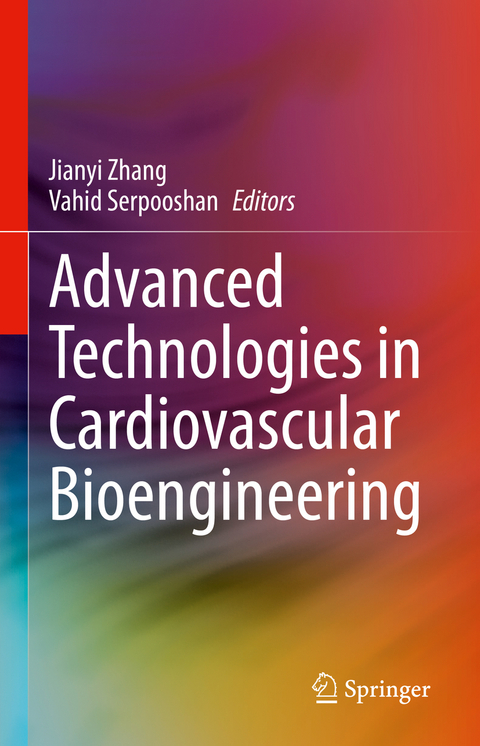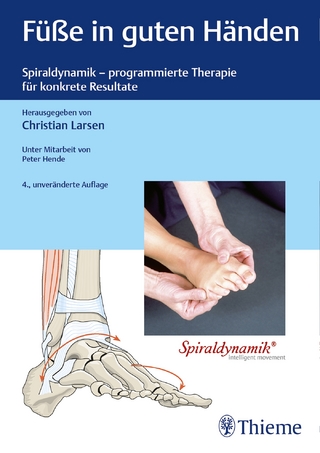
Advanced Technologies in Cardiovascular Bioengineering
Springer International Publishing (Verlag)
978-3-030-86139-1 (ISBN)
Jianyi "Jay" Zhang, M.D., Ph.D., F.A.H.A., is an international leader in myocardial bioenergetics, biomaterials, and pluripotent stem cells (PSC) for cardiac repair. He is tenured Professor of Medicine and of Engineering; T. Michael and Gillian Goodrich Endowed Chair of Engineering Leadership; and the Chair of the Department of Biomedical Engineering (BME), a joint department of the School of Medicine and School of Engineering, at the University of Alabama at Birmingham (UAB). He came to UAB in 2015 after he was chosen in a national search to lead the UAB BME department from the University of Minnesota Medical School, where he was the Engdahl Family Foundation Chair in Cardiovascular Regenerative Therapies, in addition to being a tenured professor of medicine, of biomedical engineering, of electrical engineering, and computer engineering. Dr. Zhang earned his M.D. from Shanghai Medical University and his Ph.D. in biomedical engineering from the University of Minnesota. He also earned a Master of Science in engineering and a certificate of business administration from Tuft University. Prior to joining the faculty at the University of Minnesota, Dr. Zhang completed postdoctoral work in that university's cardiovascular division. His research interests include tissue engineering, myocardial energetics in hearts with postinfarction left-ventricle remodeling, heart failure, biomaterials, and human induced pluripotent stem cells for cardiac repair. He is currently the principal investigator of four R01 NIH grants in the fields of myocardial bioenergetics, biomaterials, and stem cells for cardiac repair, NIH BIB T32 training grant, and an NIH U01 grant for the NHLBI Progenitor Cell Translational Consortium (PCTC) on cardiovascular tissue engineering, which continuous through 2025. Vahid Serpooshan, PhD, earned his BSc and MSc in materials science and engineering at Sharif University and his PhD in biomaterials and tissue engineering at McGill University. His PhD thesis research focused on the design and optimization of scaffolding biomaterials for bone tissue engineering applications. Following his PhD, Dr. Serpooshan worked for seven years at Stanford University School of Medicine as a Postdoctoral Fellow (Pediatric Cardiology) and Instructor (Stanford Cardiovascular Institute). At Stanford, Dr. Serpooshan's training and research were mainly centered on developing a new generation of an engineered cardiac patch device to repair damaged heart tissue following myocardial infarction (heart attack). The engineered patch was successfully tested in mouse and pig models and is now in preparation for clinical trials. He also worked on enabling technologies for human-machine hybrid cardiac tissue, using 3D bioprinting to assemble complex arrays of interfaces between synthetic and biological materials. In 2018, Dr. Serpooshan joined Emory University and Georgia Institute of Technology as an Assistant Professor of Biomedical Engineering and Pediatrics, where his multidisciplinary team is now working on a variety of 3D bioprinting-based tissue engineering and disease modeling projects.
Part I. Cardiac development and morphogenesis.- Chapter 1. From simple cylinder to four-chambered organ: a brief overview of cardiac morphogenesis.- Chapter 2. Lineage Tracing Models to Study Cardiomyocyte Generation during Cardiac Development and Injury.- Chapter 3. Mechanisms that govern endothelial lineage development and vasculogenesis.- Part II. Cellular approaches to cardiac repair and regeneration .- Chapter 4. Remuscularization of Ventricular Infarcts Using the Existing Cardiac Cells.- Chapter 5. Allogeneic immunity following transplantation of pluripotent stem cell-derived cardiomyocytes.- Chapter 6. Vascular regeneration with induced pluripotent stem cell-derived endothelial cells and reprogrammed endothelial cells.- Chapter 7. The guinea pig model in cardiac regeneration research; Current tissue engineering approaches and future directions.- Part III. Genetic approaches to study cardiac differentiation and repair .- Chapter 8. Analyzing genetic programs of cell differentiation to study cardiac cell diversification.- Chapter 9. Recombinant Adeno-Associated Virus for Cardiac Gene Therapy.- Part IV. Bioengineering approaches to cardiovascular tissue modeling and repair.- Chapter 10. Microfabricated Systems for Cardiovascular Tissue Modeling.- Chapter 11. Bioengineering of Pediatric Cardiovascular Constructs: In Vitro Modeling of Congenital Heart Disease .- Chapter 12. Biomaterial Interface in Cardiac Cell and Tissue Engineering.- Chapter 13. Stem Cell-based 3D Bioprinting for Cardiovascular Tissue Regeneration.- Chapter 14. Creating and Validating New Tools to Evaluate the Electrical Integration and Function of hPSC-derived Cardiac Grafts in Vivo.- Part V. Clinical perspectives .- Chapter 15. Understanding the Molecular Interface of Heart Disease and COVID-19: A Data Science Approach.- Chapter 16. Clinical Application of iPSC Derived Cardiomyocytes in Patients with Advanced Heart Failure.- Chapter 17. Cell Therapy with Human ESC-derived Cardiac Cells: Clinical Perspectives.
| Erscheinungsdatum | 08.02.2022 |
|---|---|
| Zusatzinfo | X, 407 p. 74 illus. |
| Verlagsort | Cham |
| Sprache | englisch |
| Maße | 155 x 235 mm |
| Gewicht | 786 g |
| Themenwelt | Medizin / Pharmazie ► Physiotherapie / Ergotherapie ► Orthopädie |
| Naturwissenschaften ► Biologie ► Zellbiologie | |
| Technik ► Maschinenbau | |
| Technik ► Medizintechnik | |
| Schlagworte | 3D Bioprinting • 3D organoid systems • Biomanufacturing • Biomaterial systems • Cardiac bioengineering • Cardiovascular tissue engineering • Organ on a chip • Regenerative medicine • stem cell technologies • Tissue engineering |
| ISBN-10 | 3-030-86139-2 / 3030861392 |
| ISBN-13 | 978-3-030-86139-1 / 9783030861391 |
| Zustand | Neuware |
| Informationen gemäß Produktsicherheitsverordnung (GPSR) | |
| Haben Sie eine Frage zum Produkt? |
aus dem Bereich


